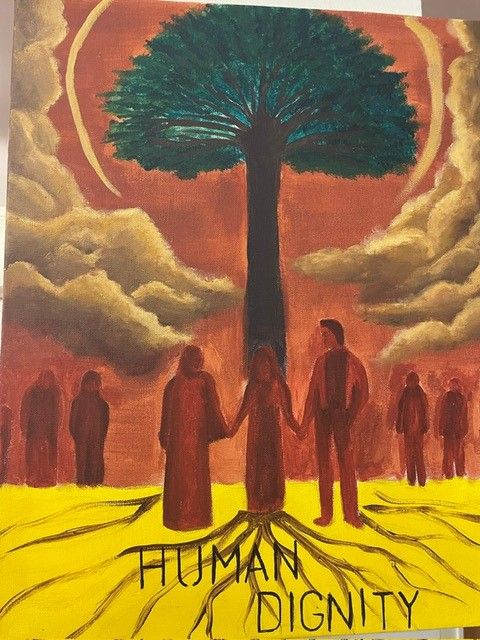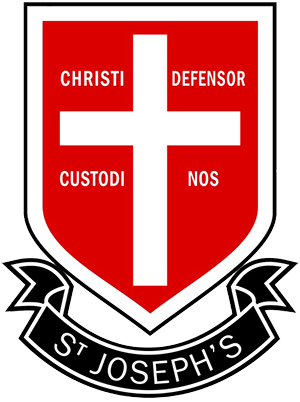Our School
Human Dignity

Work by Ann Kavalakkat
There is neither Jew nor Greek, there is neither slave nor free, there is no male and female, for you are all one in Christ Jesus. Galatians 3:28
At St Joseph’s we respect human dignity in all we do. We believe every human person is made in the image of God. Consequently, every person is worthy of respect simply by virtue of being a human being. The Christian belief that all of us are created in the image and likeness of God teaches us that every person has value, every person must be treated with respect, every person has an inherent dignity, not because of what they achieve, not because of their status in life but simply because they are
The principle of Human Dignity means that Catholic Social Teaching takes a strong position not only on issues around the start and end of life (like the death penalty and abortion) but also everything in-between. For example: it can affect how we think about how our society supports those with disabilities, how we address global inequality, how we think about trade and the approach we take to civil rights issues.
Pope Francis asked: “How can it be that it is not a news item when an elderly homeless person dies of exposure, but it is news when the stock market loses two points?
Our concern for the dignity of others should shape our economic policies and find expression through the way we live our lives. It is not enough to be against an issue like euthanasia, we must be involved in: “working to eliminate the structural causes of poverty and to promote the integral development of the poor, as well as small daily acts of solidarity in meeting the real needs which we encounter.”
Where is it seen in at St Joseph’s
The Catholic Social Teaching principle of Human Dignity is reflected across the school curriculum, emphasizing the inherent worth of every person. In Religious Education (RE), students explore topics such as abortion, euthanasia, and the Sanctity of Life, which highlight the value of life as sacred and worthy of respect
At Key Stage 4, Year 10's focus on the Creation story emphasizes God's intention for humans to be treated with dignity, and Year 11 examines Human Dignity in the context of religious freedom and social justice.
In Science, students engage with ethical issues, such as stem cell research and cloning, to consider the moral implications of scientific progress. In History, human dignity is explored through the study of migration, slavery, the Civil Rights Movement, and the Holocaust, highlighting the importance of equality and justice. Geography encourages students to reflect on the ethics of immigration and the disparity of wealth across the globe.
Languages also address Human Dignity through the study of relationships and role models. RSHE centres on mental health, healthy relationships, and respect for others, while PE promotes teamwork, sportsmanship, and respect for individuals. In Art, students learn about the representation of humanity and the importance of respecting diverse beliefs. Throughout, the curriculum reinforces the intrinsic dignity of all people and the need for respect and equality in all aspects of life.
In our Pastoral care, Human Dignity is the heart of the relationships we have with others. Whether through the show and tell each week in form time, or ensuring relationships between staff and students are grounded on mutual respect, Human Dignity is fully shown at St Joseph’s.

